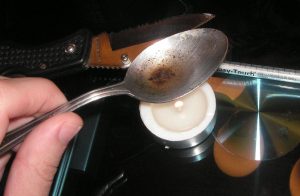My 10-year-old daughter asked me today, what are yeast?
 I started into one of my typical speeches about the difference between prokaryotes and eukaryotes, the role of the nucleus and fun with fermentations.
I started into one of my typical speeches about the difference between prokaryotes and eukaryotes, the role of the nucleus and fun with fermentations.
We have some basic microbiological work to do, and the French professor reminded me I was talking to a 10-year-old.
I reminded the French professor she should stick to French.
But if I’m going to teach her hockey basics, I guess I can teach her some micro, and she can teach me about art (she’s really talented; and that applies to both mother and daughter).
Hockey player and veterinarian, Scott Weese of the Worms and Germs blog, writes that rabies and distemper are the two things that come to mind first when a raccoon is acting strangely. Rabies is a big concern because it can also be transmitted to people. Distemper is also a viral infection, caused by canine distemper virus, and is transmissible to dogs and some wildlife species, but is not zoonotic. Raccoons are very susceptible to distemper and infections and outbreaks are common. If raccoon rabies is present in the area, we need to err on the side of caution and treat an abnormal raccoon as potentially rabid until proven otherwise. If raccoon rabies isn’t in the area, an abnormal raccoon is generally assumed to have distemper (but rabid raccoons can hitch rides on vehicles, so we can’t rule out rabies completely without testing).
But there is one other possible cause for a raccoon to be acting somewhat drunk… alcohol.
A story from last fall (yes, I’m a bit slow) in the Washington Post describes a rabies scare in West Virginia, where the raccoons were ultimately determined to have been intoxicated by alcohol. No, they hadn’t raided a liquor store – it turns out they’d been eating fermented crab apples.
Surprisingly (and good to hear), they weren’t euthanized right away because of their abnormal behavior. Just like we do for any other drunken mammalian species, the raccoons were held until they sobered up, and were then sent on their way. A picture of one of the young offenders was released by the Milton (W. Va) Police Department. It’s much cuter than the typical mug shot.
Drunk or not, it’s still a good idea to stay away from raccoons, especially in southern Ontario.









